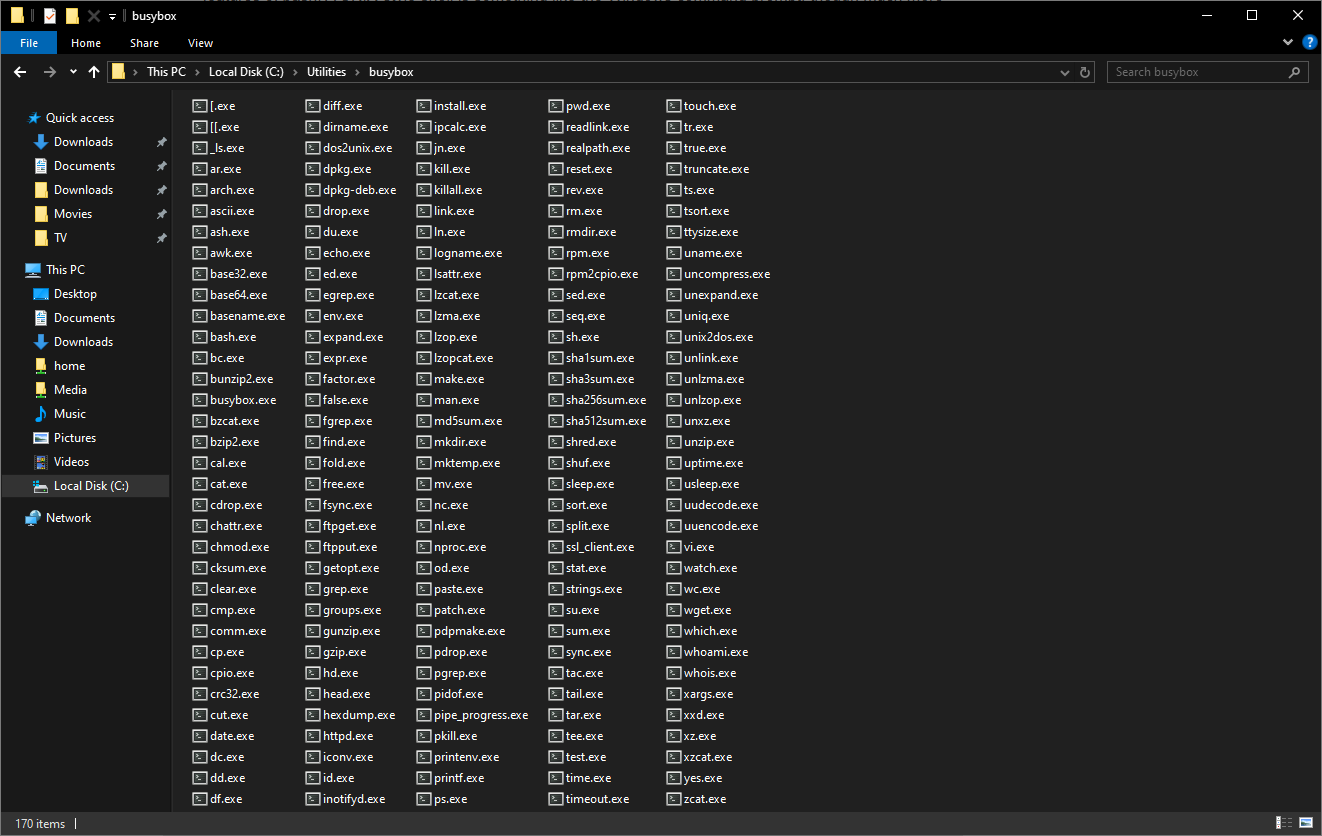The project you linked to says:
Go Busybox is a set of Go tools that allow you to compile many Go commands into one binary. The resulting binary uses its invocation arguments (os.Args) to determine which command is being called.
You asked "Where should I implement that?" What feature do you want to implement in the Elvish project? It is unlikely that Elvish will implement the core feature of gobusybox; namely, including other programs as commands. Primarily because doing so requires glue code that the gobusybox project doesn't require. That is, for Elvish to to treat it as a builtin rather than an external program requires glue code that can't be automagically created.
You seem to be asking how to include external commands ("utilities") as Elvish builtins using a mechanism similar to what the gobusybox project uses to embed external programs in the gobusybox binary. The only way that would work is to do the same thing gobusybox does. Specifically, embed an external command into the Elvish binary but with no Elvish binding. Which means running the embedded command is indistinguishable from running it as an external command. What would be the point? Doing that only serves to increase the size of the Elvish binary and add more dependencies to the Elvish project. If you need one of those commands why not simply compile and install the resulting binary somewhere in $E:PATH?
I may not understand your question. Embedding arbitrary external programs in the Elvish binary (similar to what gobusybox does) doesn't seem useful.

What new feature should Elvish have?
I came across this while doing my usual RISC-V shenanigans: https://github.com/u-root/gobusybox Sophgo uses u-root as part of their bootloader which is super cool and I haven't seen that before. But as part of that, u-root features a set of, well, core utilities. And since they too are implemented in Go, I think it'd make a perfect fit!
So, whilst I annotated this as a feature request, I'd actually much rather like to know: Where should I implement that? I have been doing a lot of Go development at work lately and since I really want to use Elvish everywhere, I see no reason not to implement some useful builtins.
Now then, do you have a pointer for me? :)
Output of "elvish -version"
Not applicable!
Code of Conduct